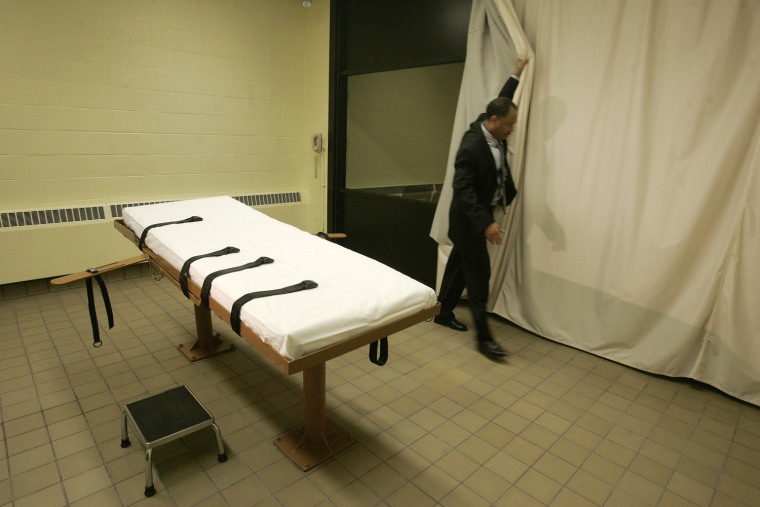A federal judge refused Monday to block the Ohio execution of a convicted murderer and rapist who is sentenced to die by an untested lethal-injection cocktail later this week, even as he declared it an "experiment."
Inmate Dennis McGuire's lawyers had argued that the combination of the sedative midozolam and painkiller hydropmorphone could leave to a painful and terrifying phenomenon called "air hunger" before he actually dies.
U.S. District Judge Gregory Frost said the condemned man did not present enough evidence that there is "a substantial risk" he will experience the "severe pain" that would constitute a violation of the ban on cruel and unusual punishment.
But Frost also noted, "there is absolutely no question that Ohio's current protocol presents an experiment in lethal injection processes."
"To pretend otherwise, or that either of the experts or this Court truly knows what the outcome of the experiment will be, would be disingenuous," he added.

Yet the risk of pain or complications "is acceptable within the contours of the Constitution," he wrote.
Ohio turned to the two-drug method due to a shortage of its primary drug, pentobarbital, which the manufacturer has refused to sell for executions.
The first prisoner who was supposed to receive it, child-killer Ronald Phillips, won a reprieve when the governor delayed the date with death to study the feasibility of his offer to donate his organs.
McGuire — who was convicted of the rape and fatal stabbing of Joy Stewart in 1989 — is scheduled to die Thursday. His lawyers have not decided whether to appeal.
"We are disappointed in today's ruling, although we appreciate that the Court recognized that significant concerns still remain about what will happen when the State of Ohio uses its new execution protocol," they said in a statement.
